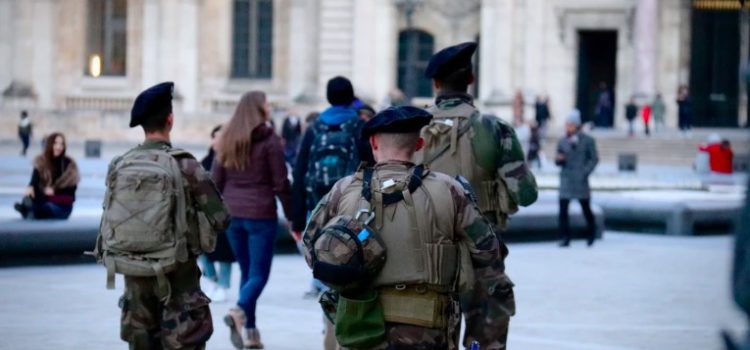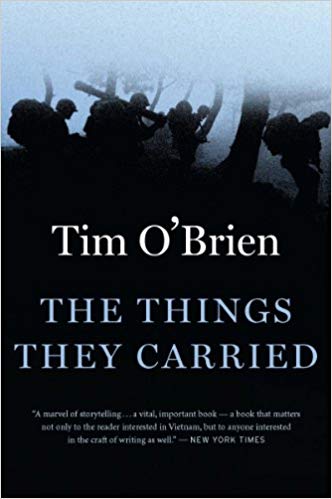

This article is an excerpt from the Shortform summary of "The Things They Carried" by Tim O'Brien. Shortform has the world's best summaries of books you should be reading.
Like this article? Sign up for a free trial here .
What happens in The Things They Carried “Speaking of Courage” chapter? How does this chapter, “Speaking of Courage,” demonstrate the challenges of reintegrating with society after the war is over?
We’ll look at the basic elements of The Things They Carried‘s “Speaking of Courage” chapter and look at how, sometimes, the hardest part about war is coming back home.
The Things They Carried: “Speaking of Courage”
In this chapter of The Things They Carried, “Speaking of Courage,” a soldier from Alpha Company named Norman Bowker returns to his hometown in Iowa after the war. He is unable to find a meaningful use for his life after the war, and spends his days and nights wistfully driving his car along the lake in his town, remembering friends lost and a life gone by. He thinks about his best friend from high school who drowned in the same lake and about his teenage sweetheart, Sally Kramer, who is now married.
He imagines conversations that he’d like to have with all the people in his life, but never actually does. He fantasizes about visiting Sally and impressing her with his war-taught skill of being able to tell time without looking at a clock. He is haunted by the Silver Star medal for uncommon valor that he almost won in Vietnam, but never did. In this chapter of The Things They Carried, “Speaking of Courage,” his life has become a series of regrets, unfulfilled promises, and dreams unrealized.
He yearns to talk with people about his experiences, to tell his stories. He longs to have a conversation with his father, in which he shares the fact that he almost won the Silver Star. In Norman’s imagination, his father comforts him and tells him that he is proud of him anyway and that many soldiers who are brave nevertheless return home without medals. In Norman’s mind, he failed to win the Silver Star because he didn’t display bravery in the right moment. But in The Things They Carried’s “Speaking of Courage,” Norman never actually shares any of this with his father.
Later, he imagines telling Sally about that terrible night where he didn’t win the Silver Star. The unit had been camped out, he tells her, in a field on a stormy night, which turned the dirt to mud. They had been warned away from camping in this particular field by the locals, but their warnings went unheeded, with First Lieutenant Cross even chasing the villagers away with rifle fire. Norman remembers the awful, all-consuming smell of this field, and how the rain covered the men in the filth. They realized that they had settled down into a sewage field and were mired in human waste. He even imagines Sally being offended when he describes the place as a “shit field.”
In The Things They Carried’s “Speaking of Courage,” he pictures telling her about coming under heavy mortar fire in this awful place, how the mud and human waste oozed and boiled up into his face and even into his mouth. And he remembers seeing Kiowa sinking into the vile ooze, and being unable to save him. He remembers watching Kiowa drowning (it’s unclear if he was also hit by gunfire) and trying desperately to save him by grabbing his boot and attempting to pull him out. But he was unable to rescue his comrade.
This is why he failed to win the Silver Star. This is what he is haunted by. Throughout the war, he had been braver than he ever thought he could be, but not as brave as he wanted to be—and needed to be in that moment.
After “Speaking of Courage”
In a chapter after The Things They Carried’s “Speaking of Courage,” O’Brien tells us that Norman Bowker shared this story with him in 1975, three years before Bowker hanged himself in the locker room of a YMCA. He had sent O’Brien a long, rambling, and disjointed letter in which he shared his thoughts on life after Vietnam; his resentment toward “patriotic idiots” who knew nothing about what the war was actually like; and his feeling that he had actually died back in the shit field all those years ago, rendering his life after that moment a mere addendum or epilogue to his story.
O’Brien thinks about how he has made the transition from Vietnam to the world after. He has done this by telling stories, which he likens to clearing the throat. Storytelling enables him to clarify and make sense of his experiences, objectifying them and separating them from himself. He has told his stories, engaged in catharsis, in a way that Bowker never could. This is a theme of both this chapter and The Things They Carried’s “Speaking of Courage.”
O’Brien then reveals that he adapted the emotional crux of Bowker’s tale into a published short story, with some adaptations. For example, he condensed most of the action to a single time and place, of Bowker circling his car around a lake as he imagines unspoken conversations (apparently, the car circling is a literary device and Bowker didn’t literally do this). He also changed Bowker’s name and used his own hometown to color the scenery of the journey around the lake. Most notably, however, he omitted the part about Kiowa and the field, which he now feels substantially weakened the piece and robbed it of much of its emotional impact. O’Brien tells us that Bowker was disappointed to see these details missing. His story had not been told after all. He killed himself a mere eight months later.
———End of Preview———

Like what you just read? Read the rest of the world's best summary of "The Things They Carried" at Shortform . Learn the book's critical concepts in 20 minutes or less .
Here's what you'll find in our full The Things They Carried summary :
- What the Vietnam War was like for soldiers on the ground
- How Vietnam soldiers dealth with the psychological stress of death around them
- How fictional stories can be truer than the truth






